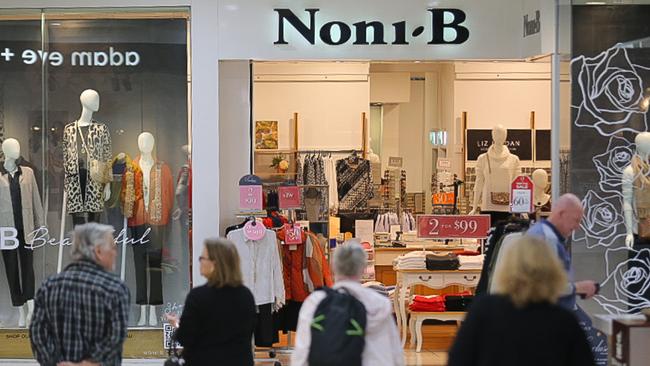
Troubled retailer Mosaic was forced to reveal it’s trading under “safe harbour” provisions that protect its directors from trading insolvent in a test case that has outraged investors who were not aware of the extent of the company’s problems.
The owner of famous women’s clothing brands such as Rockmans, Katies, Millers, and Noni B was forced to halt trading on Wednesday after a media article revealed the company had “entered safe harbour” while it worked through a restructure to give creditors a better outcome.
“Mind blowing”, is how Bell Direct analyst Grady Wulff described the fact Mosaic did not need to disclose it may be in, or close to, trading while insolvent.
Mosaic shares have fallen 66 per cent this year and fell 13 per cent to 4c on Wednesday after the trading halt was lifted.
“Everything is disclosable,” says Wulff. “When a director sells any shares, they have to disclose that, so why, at a time where the company could be insolvent, do they not have to disclose their own financial distress?”
Wulff believes this case “could spark a reform” to current laws.
The recently introduced laws protect the directors of Mosaic, and come as the Australian Securities & Investments Commission has declared it has a renewed focus on leaks to journalists particularly involving capital raisings and takeover activity.
ASIC chair Joe Longo wrote last week that “market leaks may fill column inches, but they erode confidence in our markets”.
“When information leaks and distorts market prices, it comes at the expense of everyday Australians saving and investing for their futures,” Mr Longo wrote.
Perhaps there should be more thought given to how an “allowed” withholding of information most would view to be market sensitive does not lead to an even greater expense to investors trading on the ASX?
The ASX Corporate Governance Council, made up of a broad range of market participants, is considering draft changes to rules around market governance issues such as disclosures. The issue of safe harbours is not on its list.
What Mosaic tells us is that it should be.
On Wednesday a number of traders were left fuming that Mosaic had been allowed to reach a point and not needed to have shared this information with the market.
Without the article that led to the trading halt, investors would have continued to trade Mosaic stock without knowing the company may be in trouble.
The safe harbour provision was introduced about five years ago for companies that may be facing or already be insolvent. It is not believed to have been frequently used, but as insolvency figures rise and the cost of living crisis turns people away from discretionary spending, it is likely more company directors will seek protection from litigation.
Wulff says not only should companies need to disclose if they have turned to safe harbour provisions, there also needs to be a maximum length of time it can be used.
“It’s a new area in a legislative process,” says Wulff. “It can go for as long as you want. There’s no restrictive end to it. But it should only be relied on for six months. A restructuring any longer spells serious warning signs for a business. So for Mosaic, it should have been disclosed to the market.”
The provisions for directors to be protected while they try to restructure an ailing company in a manner that leads to a better outcome for creditors than the appointment of an administrator certainly makes sense.
What the Mosaic example tells us is that there needs to be greater clarity about protections for investors too.



